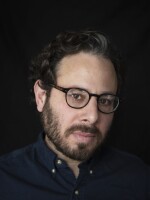AUDIE CORNISH, HOST:
From NPR News, this is ALL THINGS CONSIDERED. I'm Audie Cornish.
ROBERT SIEGEL, HOST:
And I'm Robert Siegel.
Every day, we learn more about the real damage done to the Northeast by Hurricane Sandy. Initial estimates put the cost of Sandy as high as $50 billion, and today, New York Governor Andrew Cuomo said he is asking the federal government for $30 billion just for his state.
GOVERNOR ANDREW CUOMO: This was cataclysmic for New York, and I think it's a wise investment for the federal government to help us build this economy back. The sooner we get the New York economy running, the better for this state and this nation.
SIEGEL: Joining us now to talk about the governor's request and how it might play in New York and elsewhere is NPR's Joel Rose. And, Joel, where would that money be coming from and what would it cover?
JOEL ROSE, BYLINE: So the governor says that he'll be asking Congress for a supplemental appropriation. So this is in addition to the billions of dollars Congress has already appropriated for FEMA. Andrew Cuomo says this has been done before for big storms, including Katrina, and he argues that it should be done again here and that the $30 billion would pay for more than just repairs to damage caused by Superstorm Sandy, that this would actually cover some new investment in infrastructure in New York and in the region.
SIEGEL: And critics say that the list that the governor might have in mind is a very long one.
ROSE: Indeed. The governor hasn't given too many details about what he'd like the new spending to cover. He kind of talked about four general buckets at a press conference today. Those would be infrastructure, housing, public buildings and support for small business, which he says has not gotten enough help from FEMA.
But beyond that, his aides talked about long-term investments in hardening the region's infrastructure. That means preparing subways and commuter rails, bridges and tunnels for more severe weather events, which the governor has been very adamant in saying are going to come. He believes that global warming is real and that we should be preparing for more cataclysmic weather events.
And his aides also talked about possibly creating a smart grid for the electrical system that would make it easier for power companies to find outages and fix them. The aides also talk about a new gasoline pipeline, potentially, or more redundancy in the gasoline infrastructure. They hope that would prevent some of the long lines and gas shortages that we've seen across the region, which have been especially bad in New York and Long Island.
SIEGEL: And you've heard some skepticism about federal funding for all that?
ROSE: Well, yeah. There is the question out there of why the federal taxpayers should be on the hook for all of this as opposed to state or local taxpayers. I mean, that's precisely the concern I heard from one economist at the libertarian-leaning Cato Institute today.
He says, yeah, this is an emotional time when people's homes have been destroyed, and they do legitimately need help. But there's also a tradition for governors to sort of ask for the moon in these situations, and, you know, it might be wise to be skeptical about whether these are the right investments for the federal taxpayer to make as opposed to state or local taxpayers.
SIEGEL: Well, what does that say? Is there any guarantee that Governor Cuomo will actually get this money?
ROSE: I don't think you can guarantee anything in the current political situation. I mean, this is New York alone requesting $30 billion. It could be part of a larger regional request, covering New Jersey and the other states that were hit hard by this superstorm. So, you know, it's not likely that Congress is just going to write a blank check for all of this storm recovery. So maybe this is the beginning point of a negotiation over how much federal aid New York and the region ultimately get. We'll, you know, we'll have to watch that and see.
SIEGEL: OK. Thank you, Joel.
ROSE: You're welcome.
SIEGEL: That's NPR's Joel Rose, reporting from our bureau in New York City. Transcript provided by NPR, Copyright NPR.




